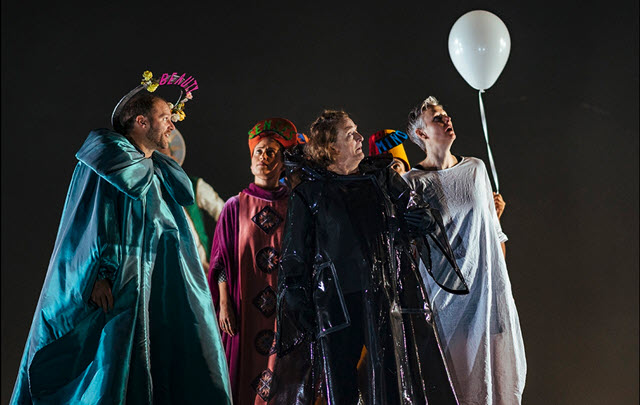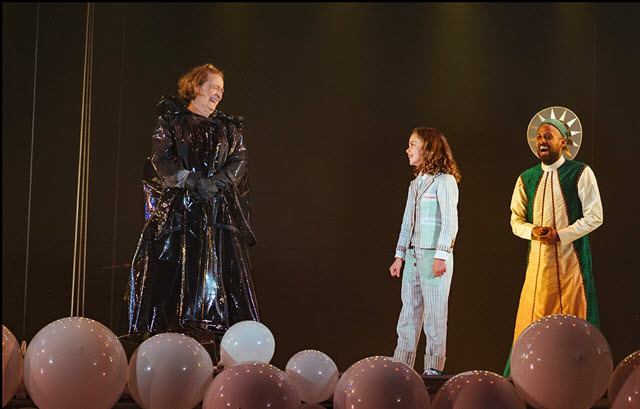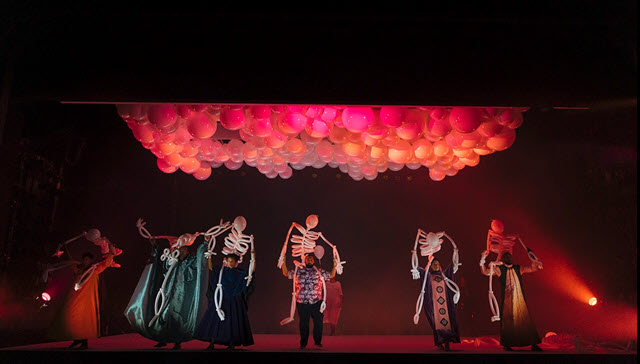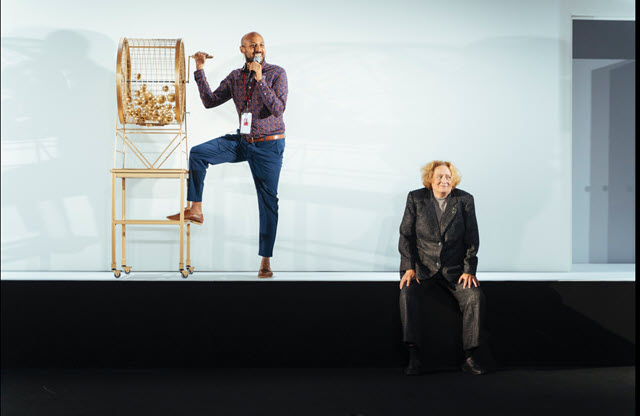Jordan Wright
February 4, 2020
Irish author and playwright C. S. Lewis wrote The Great Divorce in 1945 during World War II. He had already abandoned the Church of Ireland, the religion he was born into, become an atheist for several decades, and by the time he wrote this, he had converted to the Church of England. It was a long journey influenced by his good friend J. R. R. Tolkien. The play is a stark, often humorous, moral wrestling about God, personal responsibility, and who’s going to Heaven and who’s going to Hell. It is said to be Lewis’ idea of the purification of venal sins after death in purgatory.
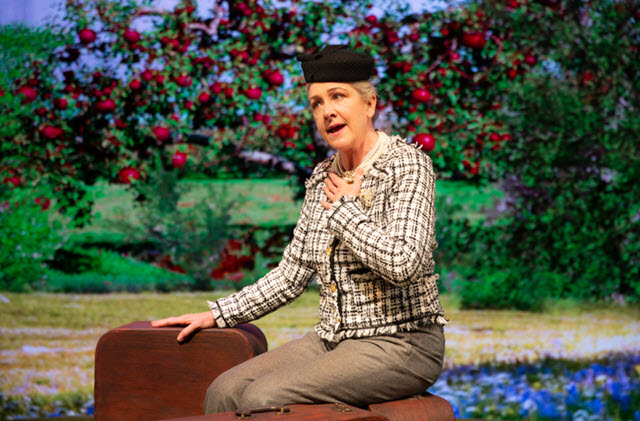
Carol Halstead in “The Great Divorce” ~ Photo courtesy of Fellowship for the Performing Arts
First, you must accept the premise that God is omnipotent, all-seeing and all-knowing. If you’re already on board with that, you can follow along as 24 different characters, portrayed by four actors, take you on a journey. The characters leave Grey Town by bus to find themselves in a sort of limbo between Heaven and Hell challenged by guides and spirits who debate their stories. The Narrator, described as a poet and a stand in for Lewis, describes their passage. The participants are all on their way to Evil as they pass through a cosmic radiant abyss to arrive at their destination.
Some are angry at the world, while others are self-righteous or self-entitled disbelievers. Some beg to return to Earth, while others see an opportunity for redemption, if they stay. As they stumble around, limping on grass that has become spiked shards, they begin to intuit their fate. As the apostate priest, George Macdonald states, “Good and Evil when they are fully grown, seem the same.” But when he states that, “All who are in Hell, choose it,” the audience responds in audible agreement.
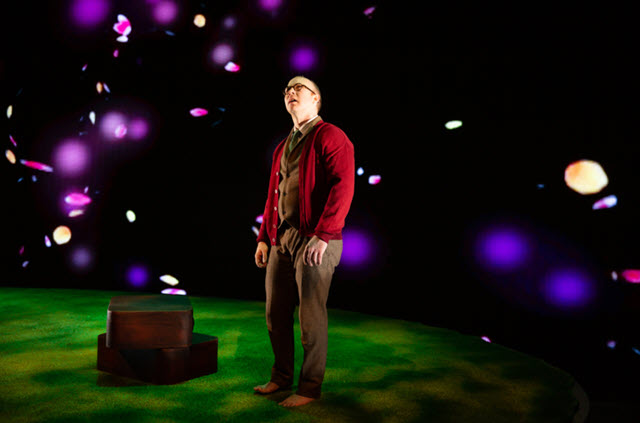
The Great Divorce – Joel Rainwater ~ Photo courtesy of Fellowship for the Performing Arts
The play is known to be a response to the popular view expressed in William Blake’s The Marriage of Heaven and Hell in which the poet imagines a point at which the differences between good and evil will somehow be resolved. This concept is what inspired Lewis to write of their final divorce.
With Jonathan Hadley, Tom Souhrada, Joel Rainwater and Carol Halstead.
Produced by Ken Denison; Directed by Christa Scott-Reed, Adapted by Max McLean; Scenic Design by Kelly James Tighe; Projection Design by Rachael Cady; Costume Design by Nicole Wee; Lighting Design by Geoffrey D. Fishburn; Original Music & Sound Design; John Gromada.
Through February 9th at the Michael R. Klein Theatre at the Lansburgh Theatre at 450 7th Street NW, Washington, DC, 20004. For tickets and information and a list of U. S. tour cities visit www.FPATheatre.com or call the box office at 202.547.1122
